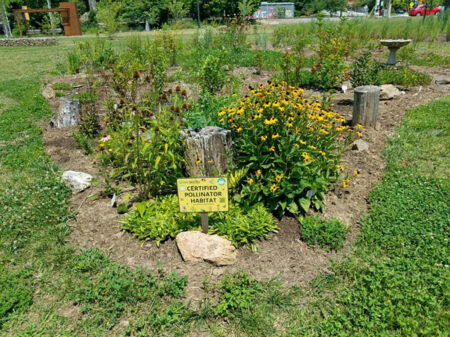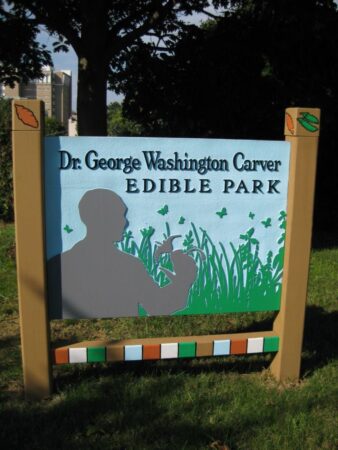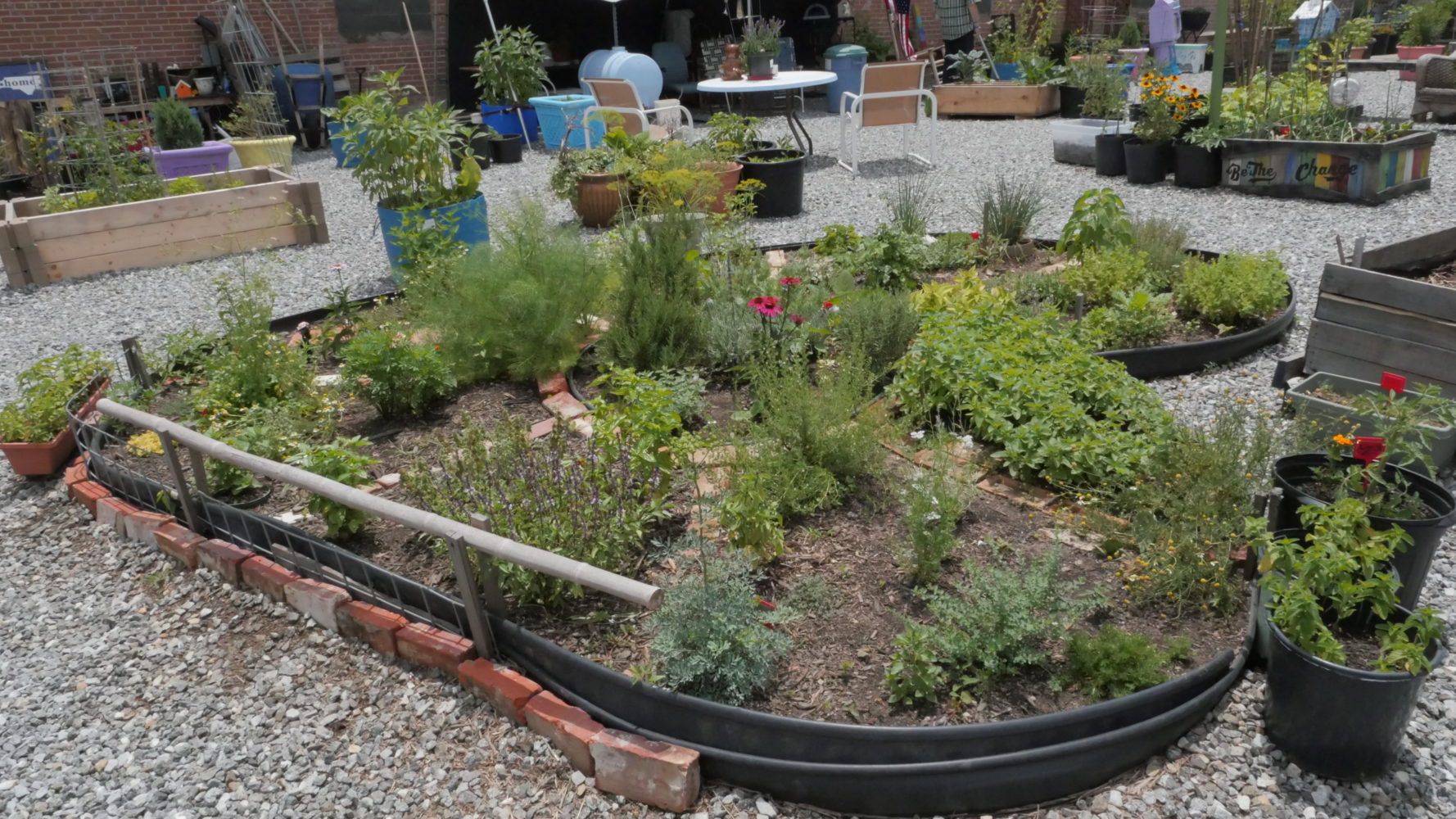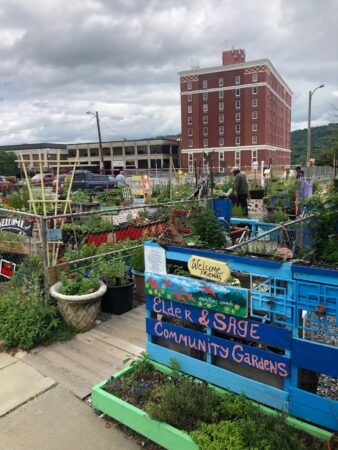Asheville Edibles Map
Access to healthy, nutritious food and the ability to cultivate, harvest, process, sell, share, and trade it helps build a thriving and resilient city environment. To support more locally grown food we’ve created the Asheville Edibles Map where you can explore and contribute to the many edible projects, plantings, and gardens in the City.
- Check out the Edibles Map here.
- Have a site to add to the map? Fill out this form.
Certified Pollinator Habitats
 We know that we can’t have nutritious, delicious food without the help of our dedicated pollinator communities so the City has partnered with Bee City Asheville to improve pollinator habitats. This partnership supports outreach and education work, Pollinator Habitat Certification on private property, and habitat development on approved City property. For projects on City-owned property, businesses, organizations, or individuals can “adopt” an area, work with Bee City Leadership to obtain site approval, develop a planting and maintenance plan, and create a public pollinator habitat. Bee City Asheville provides technical support and expertise to participants who make a positive impact on Asheville through stewardship of publicly owned places. Bee City Asheville also supports volunteer stewardship of new and existing pollinator habitats on public property, check out the awesome plantings at the RAD HAB and pollinator meadows on the Wilma Dykeman Greenway.
We know that we can’t have nutritious, delicious food without the help of our dedicated pollinator communities so the City has partnered with Bee City Asheville to improve pollinator habitats. This partnership supports outreach and education work, Pollinator Habitat Certification on private property, and habitat development on approved City property. For projects on City-owned property, businesses, organizations, or individuals can “adopt” an area, work with Bee City Leadership to obtain site approval, develop a planting and maintenance plan, and create a public pollinator habitat. Bee City Asheville provides technical support and expertise to participants who make a positive impact on Asheville through stewardship of publicly owned places. Bee City Asheville also supports volunteer stewardship of new and existing pollinator habitats on public property, check out the awesome plantings at the RAD HAB and pollinator meadows on the Wilma Dykeman Greenway.
For more information and/or to participate in the Pollinator Certification Program, visit the Bee City Asheville website.
Community Gardens
Asheville’s Community Gardens Program provides City land for growing food and building community through edible garden establishment, maintenance, and resource sharing. This program is a great way to bring your neighborhood or organization together to enjoy the many benefits of growing fresh produce with friends, family, and neighbors. Community garden locations have space for many growers, there is no cost to lease the land, and all you need are helping hands.
Since 2018 Bountiful Cities has contracted with the City to manage the Community Garden program. New applications will be considered for City property sitesbased on land availability and project suitability. Individuals or organizations interested in establishing a new community garden on city property can contact Gardner Singleton at gardnersingleton@bountifulcities.org.
Bountiful Cities staff can provide additional information and technical assistance to get involved with City-owned sites or other Community Gardens in Asheville’s Community Garden Network.
Edible Parks
 Did you know the City of Asheville is home to one of the nation’s first food forests? With over 40 varieties of fruit and nut trees, vines, and shrubs, George Washington Carver Edible Park at Stephens-Lee Recreation Center is an urban oasis and a model for growing food in and with community. Many other city properties are also home to edible plantings. Multiple mature trees bear fruit at Tempie Avery Recreation Center and there is growing community engagement and edible planting expansion and maintenance at these recreation centers and at West Asheville and Magnolia Parks. Community maintenance, educational signage, and stewardship are supported through the Bountiful Cities Project.
Did you know the City of Asheville is home to one of the nation’s first food forests? With over 40 varieties of fruit and nut trees, vines, and shrubs, George Washington Carver Edible Park at Stephens-Lee Recreation Center is an urban oasis and a model for growing food in and with community. Many other city properties are also home to edible plantings. Multiple mature trees bear fruit at Tempie Avery Recreation Center and there is growing community engagement and edible planting expansion and maintenance at these recreation centers and at West Asheville and Magnolia Parks. Community maintenance, educational signage, and stewardship are supported through the Bountiful Cities Project.


